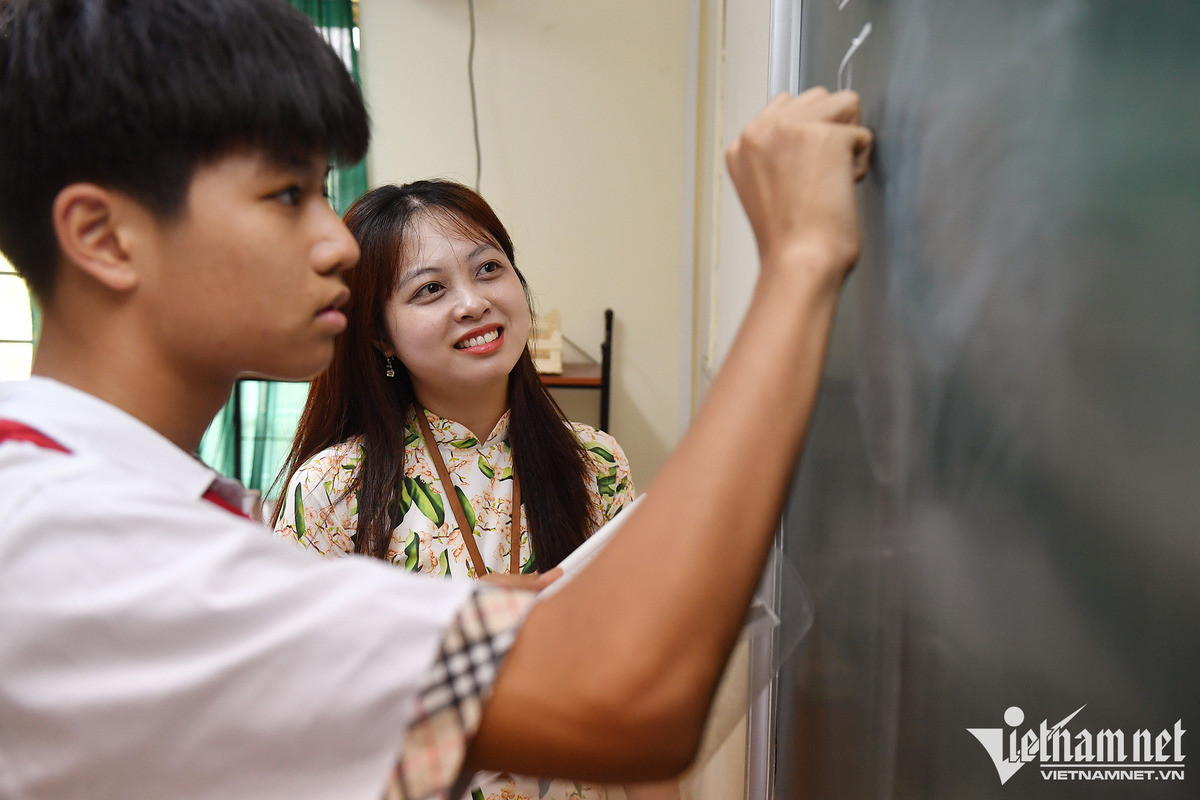
The Ministry of Education and Training (MOET) reported that as of April 2024, localities had recruited 19,474 teachers out of 27,826 teachers the localities were allowed to recruit.
This includes 5,592 preschool teachers, 7,737 primary school teachers, 4,609 secondary school teachers and 1,536 high school teachers.
In an effort to settle problems in recruiting teachers for new subjects under the 2018 new general education program, MOET and the government proposed a National Assembly resolution on allowing junior college graduates to teach some subjects.
However, MOET pointed out that the teacher shortage is still occurring in most localities, especially teachers of subjects such as English, Informatics, Music and Fine Arts.
English and Informatics were once optional learning subjects, but have been added to the official curriculum for third and higher grades. Fine Arts has become a new subject for high school students. Also, schools lack teachers for optional subjects such as ethnic minority languages.
Vu A Bang, deputy chair of Dien Bien province, said at a conference that the number of teachers is much lower than required. The number changes regularly as many teachers leave every year, which makes it difficult to organize the new academic year.
Bang said Dien Bien has applied special policies to attract teachers, especially for Informatics and English, but it still cannot recruit enough teachers.
Under Decree 141, Dien Bien prioritizes recruiting teachers in the locality, and sending teachers to training courses based on the teachers’ promise to return to work in the locality after graduation.
However, only 72 students have been sent to the training courses, including 45 students of foreign languages, and five students of informatics and other majors.
Bang has proposed continuing the policies to attract teachers to areas with extremely difficult socio-economic conditions. One of the solutions is signing indefinite labor contracts with teachers, and offering allowances for house rent, travel expenses and other items.
HCM City said it seriously lacks teachers of some new subjects, and it is difficult to recruit them because of limited number of candidates.
“With the current average salaries, it is nearly impossible to recruit teachers. And we cannot ask the HCM City People’s Council to apply financial regimes and support to teachers like the regimes applied to preschool teachers,” Thuy said.
Thuy proposed that the ministry give advice to the government on removing financial problems and creating favorable conditions for cities and provinces in order to build regimes to recruit teachers of Informatics, English and other subjects.
As of April 2024, the country lacked 113,491 teachers in different education levels.
The other problems in teacher recruitment include an abundance of teachers of certain subjects and a shortage of teachers of other subjects; and an imbalance of teachers in different regions.
In general, the quotas for teacher recruitment allocated to localities are always lower than demand. The real number of teachers for classrooms is lower than the number of teachers stipulated by MOET.
MOET has cited reasons behind this. The education sector is less attractive to university students; sources of teachers for recruitments remain modest; and recruitment in localities has been going slowly. To date, 72,000 seats have not been allocated to localities.
The increase in the number of students and classrooms requires a higher number of teachers. Because of bad planning and poor predictions, localities remain passive in preparing for teaching staff.
Meanwhile, the change in population and relocation of workers among regions does not occur in accordance with laws, which makes it difficult to predict demand for schools and teachers.
Nguyen Thi Doan, chair of the Vietnam Study Encouragement Society, said the biggest problem that needs to be solved urgently is the quality of teaching staff.
“This is a great challenge for the education sector,” she said.
“The students we are teaching belong to Gen Z, those who are ‘imbued’ with technology. Teachers need to improve their qualifications to teach this generation,” she explained.
As of the end of the 2023-2024 academic year, teachers and managerial officers at the pre-school education meeting standards accounted for 89.3 percent. The figures were 89.9 percent for primary schools, 93.8 percent for secondary schools, and 99.9 percent for high schools.
Thanh Hung - Thuy Nga